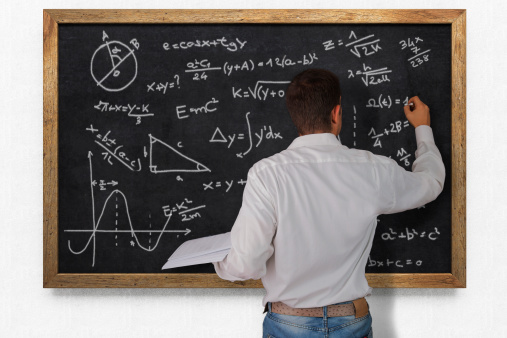The government has today announced a drive to get more physics and maths graduates into teaching. It’s a good idea, given the struggle that many headteachers report in recruiting teachers with those backgrounds. The package includes £15,000 for students to help with their university costs in return for them teaching for three years post-graduation; fast-track retraining for professionals already working in medicine and engineering; and one-to-one support for those who have already trained as teachers and are considering returning to the job.
The reason it is becoming even more important to encourage more numerate people to become teachers is that by 2030, the science-based industries are expected to employ more than 7 million people in the UK. 5.4 million already work in engineering. This is a ‘global race’ policy, designed to help young people compete with those from overseas for those high-skilled science and tech jobs.

But how much of a difference will it make? There’s an interesting report just out by the Education Datalab that uses information about pupils’ grades from the National Pupil Database to work out whether certain things we assume about education are proven by the stats. One such question is whether physics specialists actually improve attainment in physics at school. From a sample of 1128 secondary schools, the report found that just 10 per cent of teaching time at Key Stage Four was with a teacher whose degree was in physics or engineering. It also found that as many as 40 per cent of schools are teaching their KS4 curriculum without a teacher with a physics degree on the teaching team. It found that schools with physics specialists had slightly higher entry to GCSE physics, though it wasn’t clear whether this was because the teacher was encouraging greater take-up, or because they’d applied to work at the school in the first place because of higher take-up.

The report also examined the relationship between GCSE attainment in science (not just physics but science generally) and a school having a physics specialist teaching KS4. A relationship between higher-than-average scores in science and the presence of physics specialists could not be found. It also found that there was no overall relationship between a physics contextual value-added score and the number of physics specialists in the school. It said:
‘All our intuitions tell us that teachers with physics degrees should be better at teaching physics than those without. This is akin to saying that teachers with the greatest mastery of the subject should be the greatest teachers. Once we generalise to this level, we can draw on the wealth of evidence that suggests teacher quality appears to be largely unrelated to academic credentials. it is a surprising and little-understood finding – it seems that the ability to engage and impart knowledge is quite a different skill than the ability to understand and store information yourself. With this in mind, why should physics teaching be any different?’
This report is particularly interesting given those working on government policy have taken an interest in its findings. Given physics graduates will be teaching material quite different to that which they encountered on their university degrees, perhaps it is not surprising. But perhaps there is also a need to improve the quality of those teachers who are teaching physics and sciences generally, which will partly be through increasing the number of really capable people going into teaching who have a physics background. The more potential teachers a school has to choose from when trying to hire a science teacher, the more the competition and the better quality the teacher they can pick, rather than desperately plumping for someone who isn’t quite up to scratch as a teacher but who has the right degree.








Comments